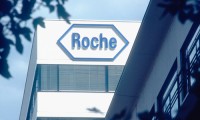-
Pfizer Inks Potential $7B Deal with Flagship to Deepen Pipeline
- Source: drugdu
- 106
- July 20, 2023
-
Pukang Biotechnology Completes Phase IV Clinical Trial of Hepatitis A Vaccine
- Source: drugdu
- 144
- July 20, 2023
-
Acumen Shares Positive Results for Investigational Alzheimer’s Disease Therapy at AAIC
- Source: drugdu
- 125
- July 19, 2023
-
Eli Lilly Strengthens the Case for Going Early in Alzheimer’s Treatment
- Source: drugdu
- 116
- July 19, 2023
-
Roche in Talks to Buy Stomach Drug from Roivant for $7B
- Source: drugdu
- 127
- July 18, 2023
-
Healthy Breast Fat may Protect Against Invasive Breast Cancer
- Source: drugdu
- 106
- July 18, 2023
-
Untangling the Amyloid-Tau Connection to Inform New Drug Development
- Source: drugdu
- 135
- July 17, 2023
-
Roche’s Ocrevus Shows Promise as a Subcutaneous Injection in Phase 3 MS Trial
- Source: drugdu
- 132
- July 17, 2023
-
Roche’s New Subcutaneous Version Measures up to IV Ocrevus in Multiple Sclerosis
- Source: drugdu
- 171
- July 15, 2023
-
Eisai, Biogen’s Leqembi May Face Rollout Hurdles Now, but Experts Still Like the Alzheimer’s Drug
- Source: drugdu
- 103
- July 15, 2023
your submission has already been received.
OK
Subscribe
Please enter a valid Email address!
Submit
The most relevant industry news & insight will be sent to you every two weeks.













